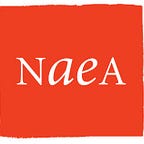Issue 18 Letter from the Editor: When Museum Education Meets Legislation
Editors Daniela Fifi, Ed.D, Kelly McKay, Ph.D, Callie Smith, Ph.D, and Alison Heney, Ph.D
Numerous jurisdictions have experienced a significant rise in laws aimed explicitly at education in schools and museums. The legislation enacted has established obstacles to the dissemination of knowledge about race, gender, and inequality, posing significant difficulties for educators dedicated to promoting social justice and destroying prejudice.
These changes restrict the topics covered and learners’ ability to access literature and services essential for their overall welfare. In museums, these laws have imposed limitations and restrictions on the range of exhibitions and programming that museums can provide.
Issue 18 Viewfinder delves into the intricate dynamics between museum educators and these regulations, examining how institutions and individuals navigate an ever-constrictive and coercive environment. In her article titled “There’s Trauma in Texas: Centering Connection and Conversations through Artworks,” Olivia Spiers examines the legislative changes in Texas that impact education. She highlights the measures taken by the team at The Art Galleries at Austin Community College to promote a trauma-aware approach among educators in response to these laws.
In her essay titled “Personal Reflection from an Educator: My Journey to a Lesson Plan,” Jasmine Krueger advocates for art educators. She emphasizes the significance of incorporating a wide range of social, cultural, and historical narratives into current pedagogical approaches, whether in classroom or museum environments. She emphasizes the importance of persistently addressing racism, diversity, equity, and inclusion with learners, despite the potential for awkward conversations and legal risks of advocacy in certain states.
Lastly, in their piece titled “Creativity & Hope Amid Educational Restrictions,” Molly Phillips, Candice Duncan-Baune, and Danielle Mužina, who are museum educators in Ohio and North Carolina, explore strategies for managing the legal limitations imposed during the current school year. The essay poses a question to museum educators regarding potential actions and strategies for progress in the field.
The Editorial Team at Viewfinder takes great pride in Issue 18, which delves into the influence of legislation on museum education and the notable beneficial developments that have emerged in the programming included in these articles. Every author provides an opportunity for educators to address the consequences that legislation may have in their own states by fostering dialogue among educators and their audiences. The programs and approaches outlined in Issue 18 have successfully addressed the issues experienced and raise the question: Can the accomplishments of these programs serve as a catalyst for profound transformations in the field?
Dr. Alison Heney (she/her) is the Vice President of Learning and Public Programs for the Museum of Latin American Art in Long Beach CA and a researcher in literacy and cognitive development with over 15 years of experience in designing and executing arts curriculum for academic and community enrichment. Her area of specialization is in K-12 education and Latin American/Latinx/Chicanx art. Alison also serves as a program co-chair for MuseWeb, the largest international conference dedicated to technology and innovation in the cultural heritage sector.
Dr. Daniela Fifi, Ed.D (she/her) is an art educator and curator who has worked in museums and galleries in the Caribbean and The United States. She is an Art Museum Education Consultant at the Central Bank Museum of Trinidad and Tobago. She is a doctoral graduate in Art and Art Education at Teachers College, Columbia University and holds a Bachelor of Fine Arts from Pratt Institute, New York and a Master of Arts in Art Gallery and Museum Studies from the University of Manchester, UK. Her doctoral research focuses on Caribbean art and intercultural programming in museums. Daniela has been awarded several fellowships and awards during her career including the New York State Assembly — Caribbean Life Impact Award, The Museum Education Research Fellowship at the Whitney Museum of American Art, and the Samuel H. Kress Interpretive Fellowship. She has taught art education, world art history, and human development in the arts at The City College of New York and New Jersey City University. She serves on the peer-review board of The Art Education Journal, the official journal of the National Art Education Association (USA). In her spare time Daniela enjoys listening to music and being in nature.
Callie Smith, Ph.D. (she/her) is a museum educator and writer based in Louisiana. She currently works at the Hilliard Art Museum at the University of Louisiana at Lafayette. She is a creative collaborator who seeks out and facilitates community-centered experiences. Her doctorate in English, MFA in Creative Writing, and bachelor’s in English Secondary Education give her a versatile skillset. Her research interests include museum studies, social justice, animal conservation, ecology, and poetry. When she’s not in the galleries, you can find her going for a run or hanging out with her cats.
Kelly McKay, Ph.D (she/they) is an arts educator, administrator, and interpreter with a focus on visual arts, performance, and movement. Kelly currently serves as Museum Learning Manager at the Museum of Russian Art. Kelly previously held roles as Academic Programs Manager at the Boca Raton Museum of Art and Lead Educator at the Walker Art Center. Kelly holds a PhD in Theatre Historiography and a MA in Performance Studies. Kelly is also a musician, performer, and very amateur bird-watcher.
